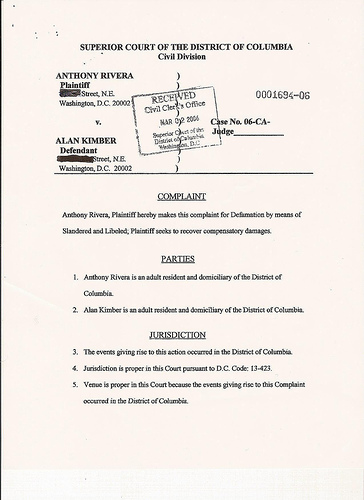It's no surprise that DC neighborhoods often don't improve...
 Image from Frozen Tropics.
Image from Frozen Tropics.I was talking with a colleague about "problems" in Brookland, which really come down to antipathy between people over organizations and who gets to be the "big dog" or leader. I commented that it's comparable to that old saw about academic politics being so vicious because the stakes are so insignificant.
Except what happens in many DC neighborhoods is that the things that need to change don't, and too often changes that occur (through development, etc.) happen at the level of least cost and least impact (through value engineering) yielding little in the way of spillover benefits that spur additional development. (Columbia Heights and Anacostia are other examples.)
This is one of the reasons that I think DC's Advisory Neighborhood Commissions are too often a wasted opportunity, although the efforts of ANC6A in the H Street neighborhood prove that ANCs can be a powerful means for change, if you have good (to great) committed people.
This article from the current issue of the Hill Rag, "Applying Leverage, By The Book: Commissioners Force Zoning Reforms -- And Stir Controversy"* makes that point very well. In my opinion, these days, ANC6A, not H Street Main Street (HSMS) and not the H Street Community Development Corporation, is the leading "commercial district revitalization program" in the Greater H Street neighborhood.
(*This article, through the use of photos and captions, implies that HSMS and its chair is part of the coalition for positive change, when that isn't necessarily the case as the organization acts as if any business is better than nothing, rather than working to specifically improve individual businesses and the overall market mix and "offer" of the commercial district as a whole.)
________
Description of ANCs from the DC Government website:
Neighborhood Democracy
The Advisory Neighborhood Commissions consider a wide range of policies and programs affecting their neighborhoods, including traffic, parking, recreation, street improvements, liquor licenses, zoning, economic development, police protection, sanitation and trash collection, and the District's annual budget.
In each of these areas, the intent of the ANC legislation is to ensure input from an advisory board that is made up of the residents of the neighborhoods that are directly affected by government action. The ANCs are the body of government with the closest official ties to the people in a neighborhood.
The ANCs present their positions and recommendations on issues to various District government agencies, the Executive Branch and the Council. They also present testimony to independent agencies, boards and commissions, usually under rules of procedure specific to those entities. By law, the ANCs may also present their positions to Federal agencies.
____________
Anyway, for "political" reasons I haven't been commenting very much about the shenanigans involving past or current members of ANC6C, which was calved off the old ANC6A after the 2000 Census, in the process redistricting of the city's political wards. The old ANC was known for fights and problems. The new ANC6A is a model of probity. But ANC6C, which includes 4 Single Member Districts in the northwest quadrant, is not.
These shenanigans are being covered in the Frozen Tropics blog. The latest is the filing of a slander lawsuit, probably because of a recall campaign being mounted against Commissioner Anthony Rivera Rivera has been indicted for check kiting, actions similar to those for which ex-Commissioner and ANC6C Chair Robert Hall has just been convicted, and Mr. Hall has been indicted as well in the action that has snared Mr. Rivera.
Democracy, as is being proven the world over, can be pretty messy, and at times, ugly.
Index Keywords: civic-engagement



0 Comments:
Post a Comment
<< Home